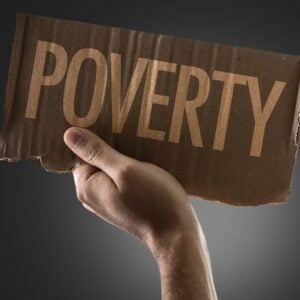Cambodia has the highest microcredit debt per capita in the world, with debts concentrated among people living in poverty who rely on loans for small businesses or emergency expenses. In 2024, around 3.8 million households held more than 3 million microloans, totaling $18 billion. A recent Human Rights Watch report highlights how Cambodian microfinance institutions, supported by international investors, have aggressively marketed loans in Indigenous communities, resulting in predatory lending practices. These practices have led to loss of land titles, hunger, children leaving school to work, and several apparent debt-related suicides.
Many borrowers cannot read, speak, or write Khmer, the official language of Cambodia, yet they have been pressured to sign documents handing over land titles. One Indigenous Kouy farmer explained the coercion to take on additional loans despite illiteracy and poor vision, reflecting the systemic exploitation of vulnerable communities.
Microfinance in Cambodia began in the 1970s as a nonprofit effort by donors and NGOs to help low-income individuals access capital for small businesses. Over time, the system evolved into a profitable enterprise for national and international investors. Borrowers, particularly Indigenous people, often take loans for urgent needs, which traps them in cycles of debt and financial instability. Private investors, state development banks, and the International Finance Corporation (IFC) of the World Bank have invested heavily in these programs, despite warnings about over-indebtedness and predatory practices dating back to 2016. The IFC alone has invested over $400 million in Cambodian microfinance providers over the past decade, contributing to one of the world’s most severe microfinance crises.
The World Bank Group’s annual meetings in Washington, D.C., from October 13 to 18, provide an opportunity to address Cambodia’s microfinance issues. Human Rights Watch urges World Bank leaders and board members to recognize borrowers as affected individuals, enforce safeguard policies, and provide remedies for victims of predatory loans.
In 2022, two Cambodian human rights groups filed a complaint with the Compliance Advisor Ombudsman, the IFC’s internal watchdog. While IFC initially sought to block the investigation, claiming its policies did not cover the borrowers, the ombudsman rejected this argument, allowing the investigation to proceed. The findings could compel IFC to offer remedies such as debt relief, compensation, and land restitution. Additionally, an independent grievance mechanism for affected borrowers should be established.
The World Bank Group meetings represent a critical chance for IFC to commit to addressing the harm caused by its investments and ensuring accountability for affected communities. Effective action would establish stronger protections for borrowers in developing countries who rely on projects funded with public foreign investment, demonstrating that their concerns can be heard and addressed fairly.







